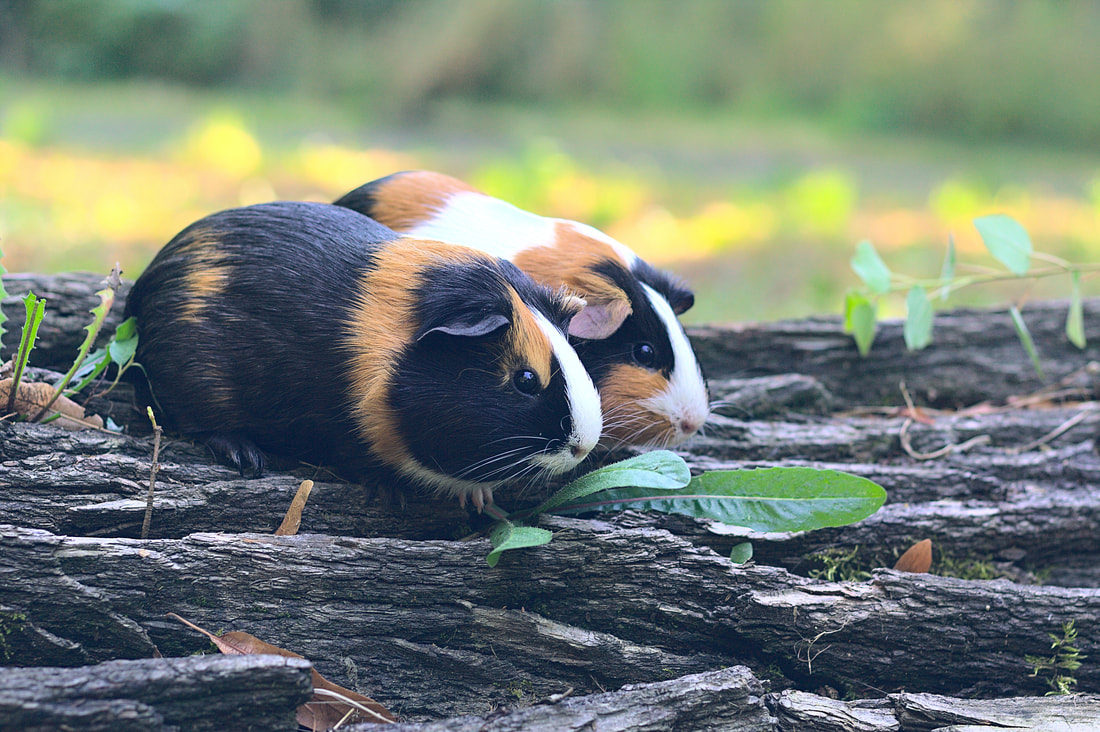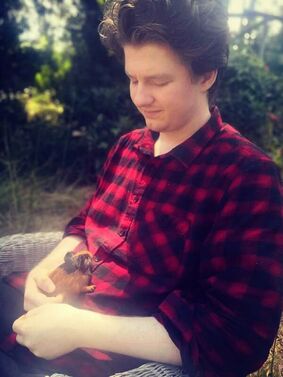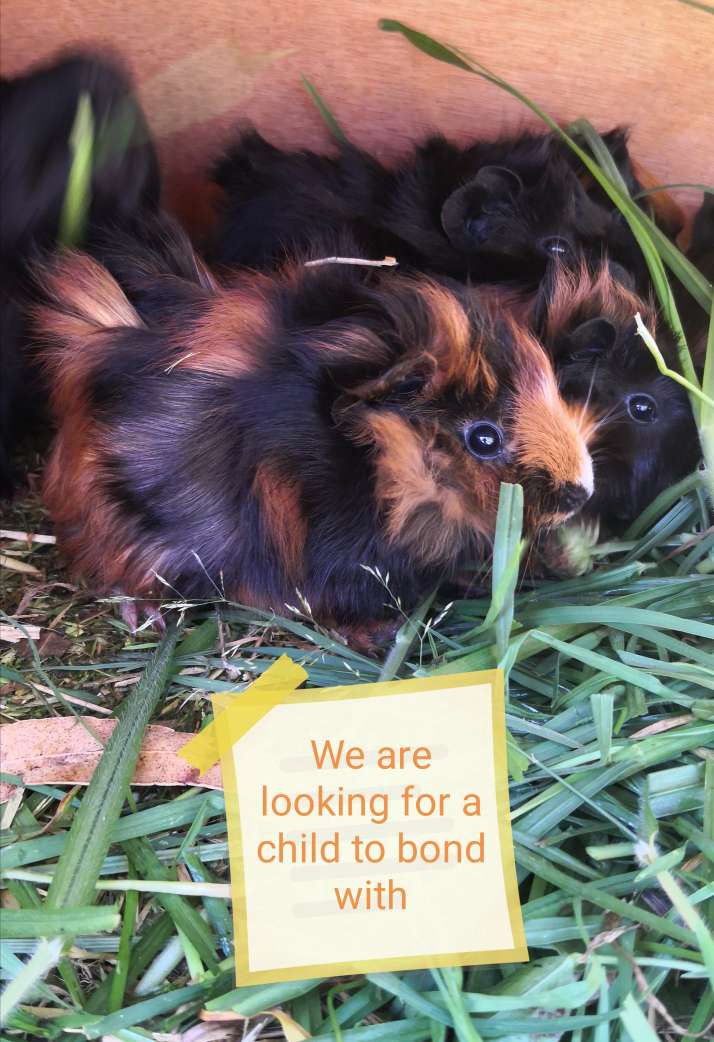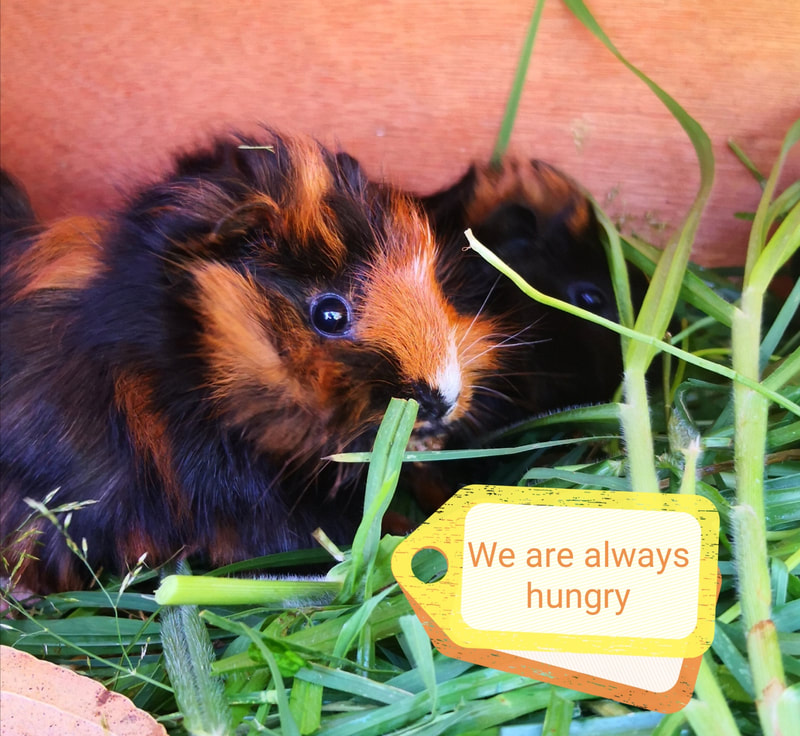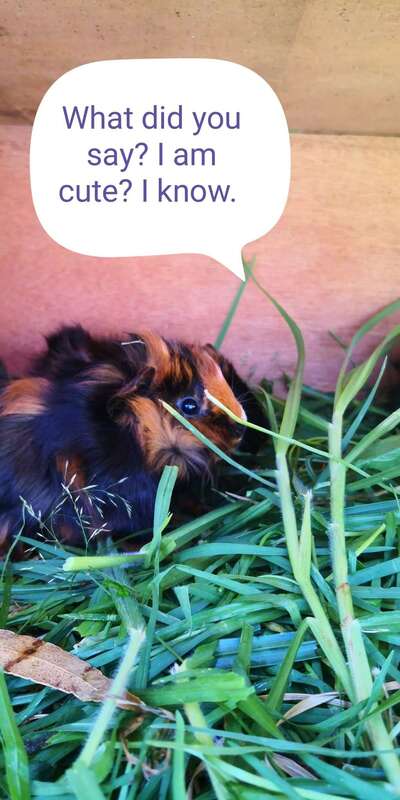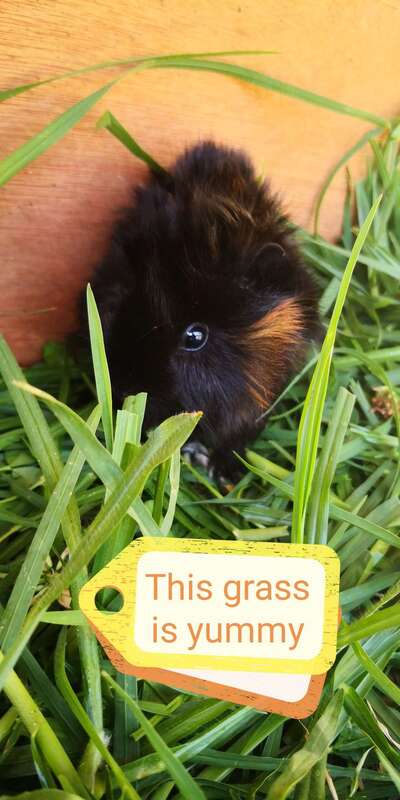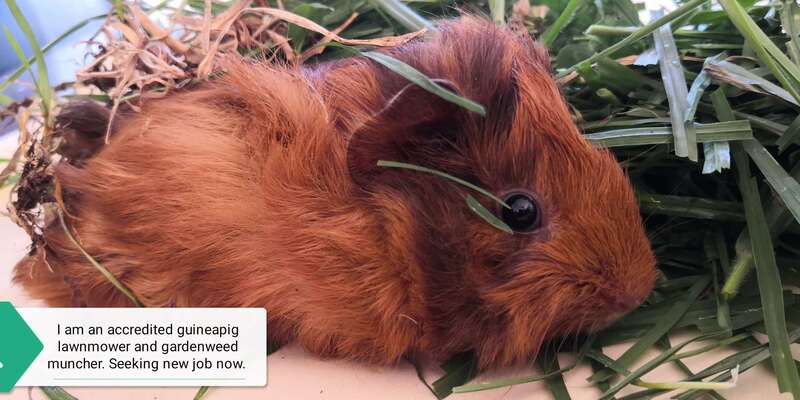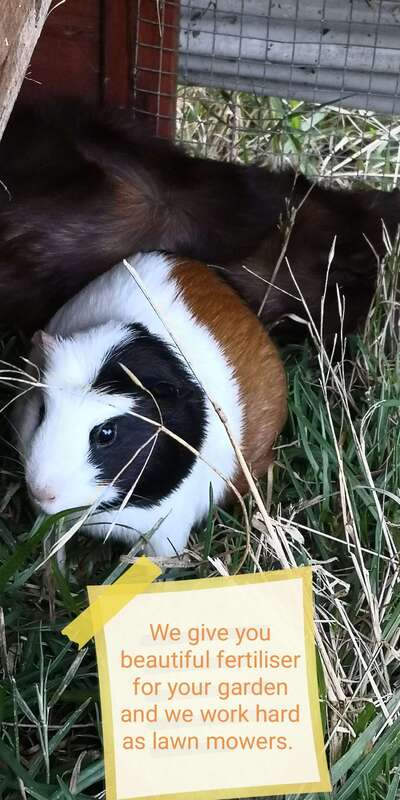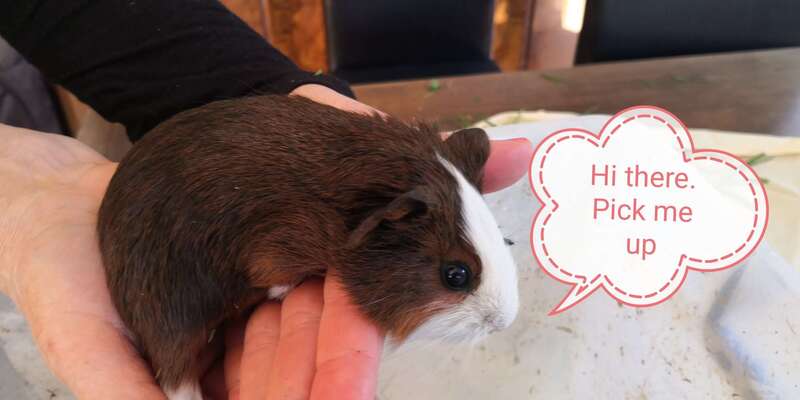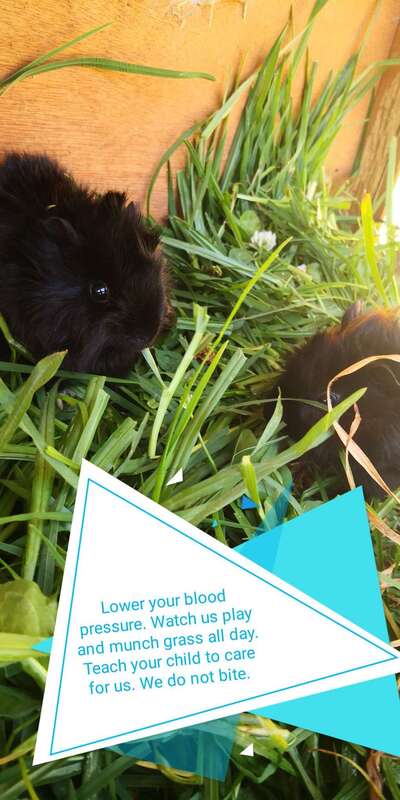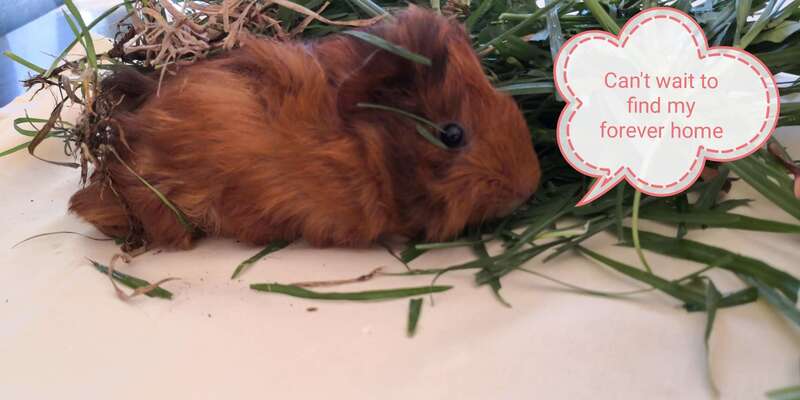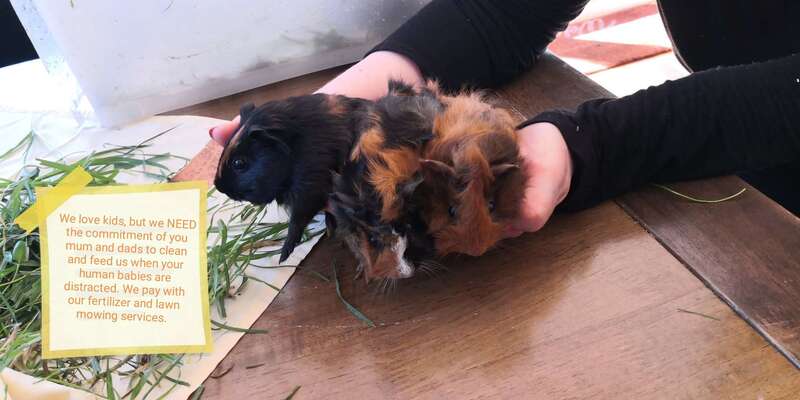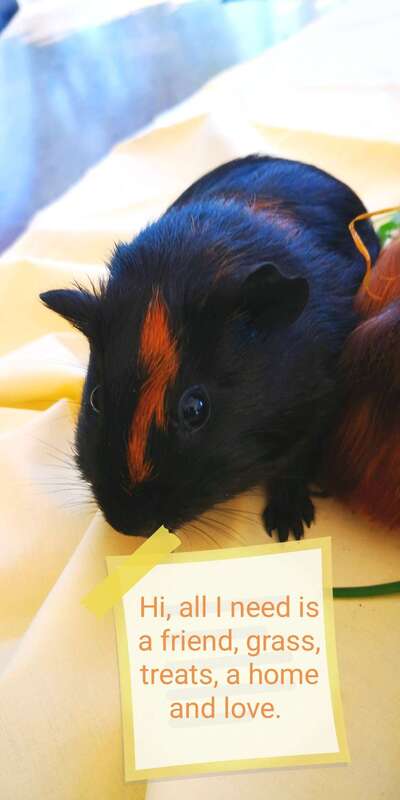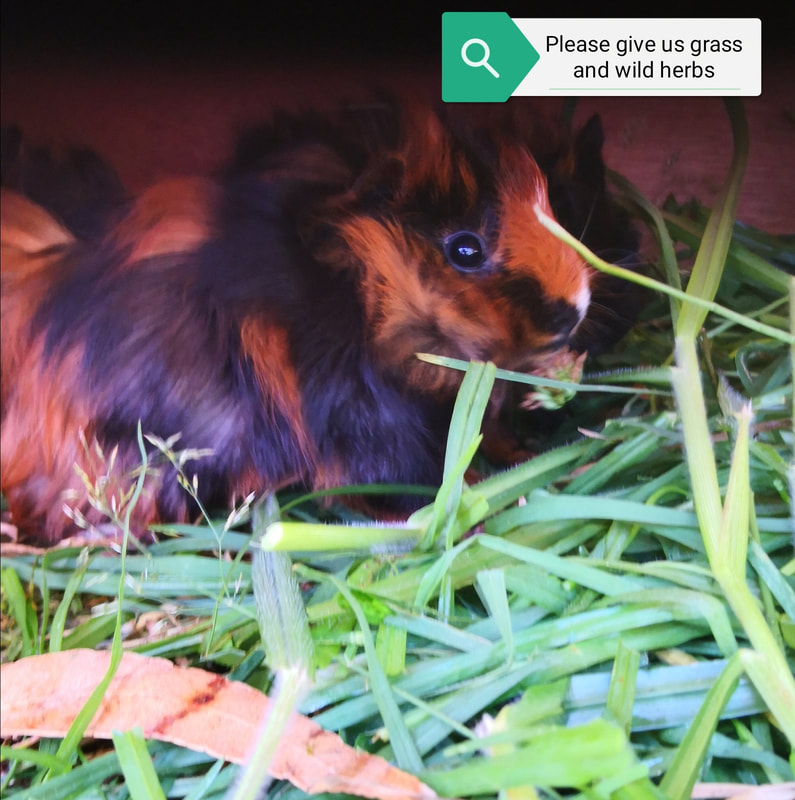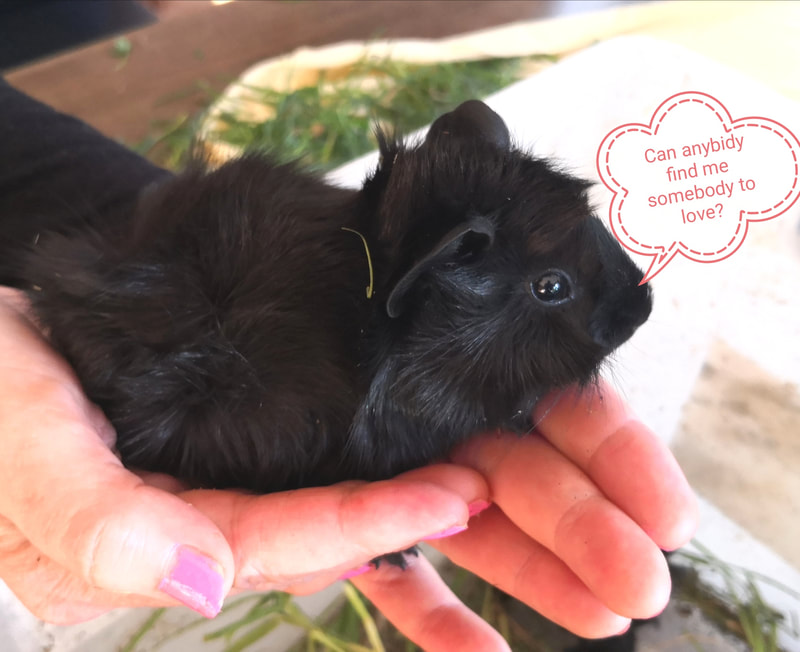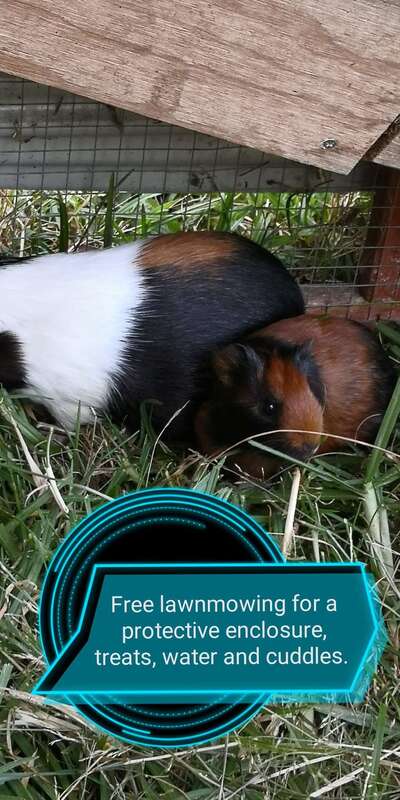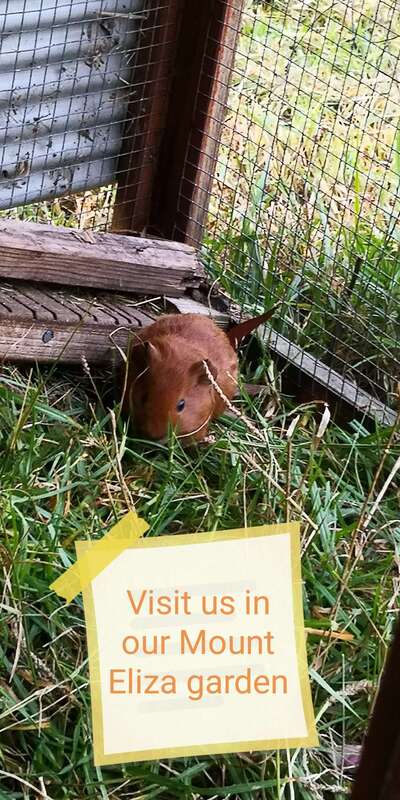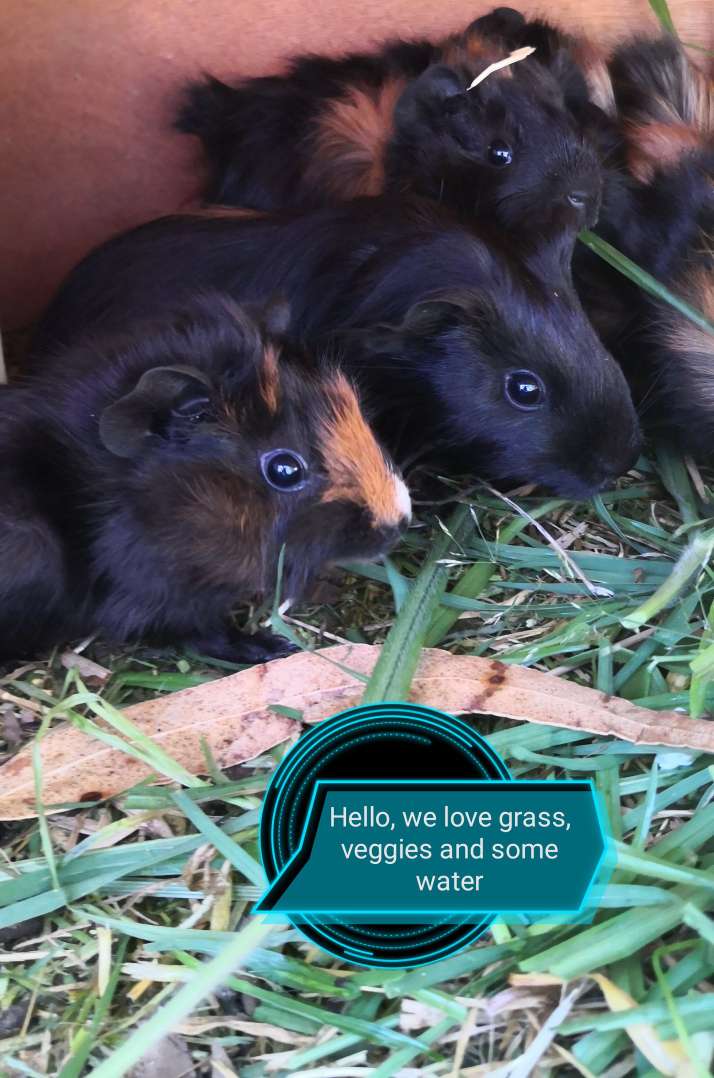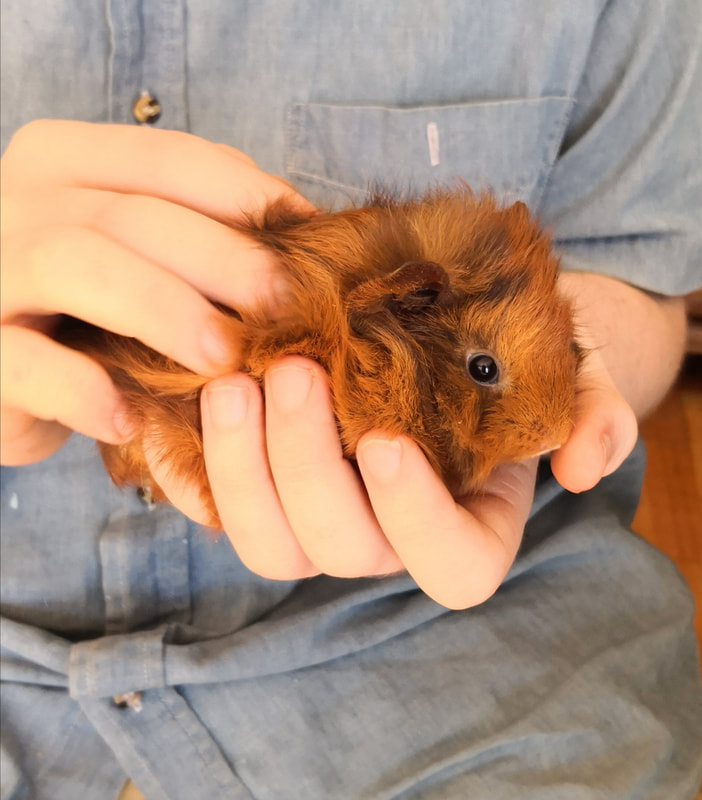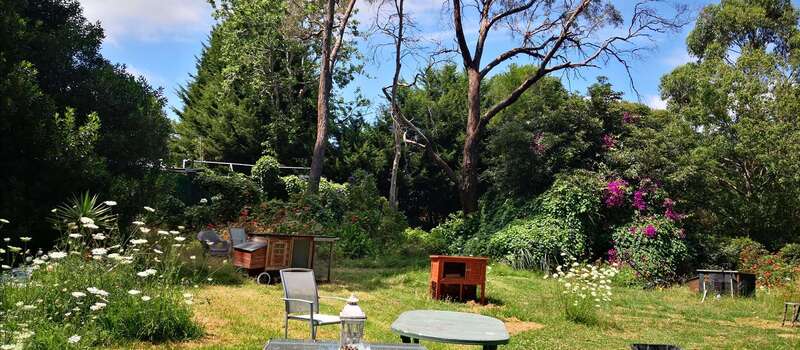
23March 2022 2 boys are still left
Some of the current youngsters that are looking for a family
Please note: We give away free emotional support guinea pigs (2) to mental health settings. Please contact us with your request here
ANIMALS AS CLAIRVOYANTS AND PROPHETS Telepathy, orientation, diagnosis, precognition: the amazing abilities of animals- Blog post
ANIMALS AS CLAIRVOYANTS AND PROPHETS Telepathy, orientation, diagnosis, precognition: the amazing abilities of animals- Blog post
|
"We are so pleased with the guinea pigs thanks so much. Is there any chance you know their birthdays my son hasn't stop asking. -:) " Shea 12. Jan 2022
|
Guinea Pigs looking for a loving home and long term employment as reliable lawnmower and child educators
|
Guinea pigs
Guinea pigs are small, sociable and 'chatty' rodents. They're traditionally thought of as great first pets for children.
Guinea pig fact file
Guinea pigs, also known as 'cavies', are social animals with a compact, rounded body shape, short legs and no tail. They originate from the grasslands and lower slopes of the Andes Mountains in South America. There are different breeds and varieties of guinea pig, with a wide range of colour and coat lengths.
Here are some more top guinea pig facts:
Guinea pigs are small, sociable and 'chatty' rodents. They're traditionally thought of as great first pets for children.
Guinea pig fact file
Guinea pigs, also known as 'cavies', are social animals with a compact, rounded body shape, short legs and no tail. They originate from the grasslands and lower slopes of the Andes Mountains in South America. There are different breeds and varieties of guinea pig, with a wide range of colour and coat lengths.
Here are some more top guinea pig facts:
- Typically guinea pigs live for 5-6 years, but some may live longer.
- Guinea pigs are active up to 20 hours per day, and only sleep for short periods.
- Guinea pigs are highly social - in the wild they live in close family groups of 5-10 guinea pigs, though several groups may live in close proximity to form a colony.
- Guinea pigs get lonely and shouldn't be kept alone - they're happiest in pairs.
- Guinea pigs need a high fibre diet supplemented with vitamin C, as they lack the enzyme needed to synthesise vitamin C and can only store it for short periods.
| guinea_pig_factfile__pdf_44kb_.pdf | |
| File Size: | 43 kb |
| File Type: | |
Guinea Pig housing upload PDF below
| guinea_pigs__2011___pdf_526kb_.pdf | |
| File Size: | 539 kb |
| File Type: | |
A healthy diet for guinea pigs
Feeding your guinea pigs the right food is essential to keeping them happy and healthy. Here's what your guinea pigs need for a good diet.
Hay and grass
Good-quality hay should make up most of your guinea pigs' diet, and they should always have it available to them. They should have fresh grass as often as possible too, ideally every day. They naturally graze, eating only grass, herbs and some other plants (such as dandelion or groundsel) for long periods, both day and night.
Remember, guinea pigs need hay and/or grass for their digestive systems to function properly. Also, their teeth are always growing, and eating hay helps wear them down to keep them at the correct length and shape. The wrong diet can cause serious dental disease.
Beware! Never feed your guinea pigs lawnmower clippings, which will upset their digestive systems and make them ill.
Pellets
Guinea pigs have special dietary needs and must get enough Vitamin C, so give them a fresh portion of grass-based guinea-pig pellets each day, as per the manufacturer's instructions. These provide essential Vitamin C, which is destroyed with exposure to air.
Don't just top up the bowl and ensure the pellets are eaten by the best before date. Your guinea pigs may need a larger portion of pellets if they're growing, pregnant, nursing or underweight. Ask your vet for advice on portion sizes if you're not sure.
Vegetables
Your guinea pigs should have fresh, washed leafy greens or weeds each day, such as kale or broccoli, which are excellent sources of Vitamin C. Guinea pigs don't naturally eat fruit or root vegetables, but you can give them in small amounts as treats, such as small pieces of carrot or an apple quarter. Don't give them citrus fruits, and remember that some plants are poisonous to guinea pigs.
A few things to remember about feeding your guinea pigsMake sure they have fresh clean drinking water continuously and check it twice daily. Ensure water doesn't freeze in winter. Without water guinea pigs become seriously ill.
Feeding your guinea pigs the right food is essential to keeping them happy and healthy. Here's what your guinea pigs need for a good diet.
Hay and grass
Good-quality hay should make up most of your guinea pigs' diet, and they should always have it available to them. They should have fresh grass as often as possible too, ideally every day. They naturally graze, eating only grass, herbs and some other plants (such as dandelion or groundsel) for long periods, both day and night.
Remember, guinea pigs need hay and/or grass for their digestive systems to function properly. Also, their teeth are always growing, and eating hay helps wear them down to keep them at the correct length and shape. The wrong diet can cause serious dental disease.
Beware! Never feed your guinea pigs lawnmower clippings, which will upset their digestive systems and make them ill.
Pellets
Guinea pigs have special dietary needs and must get enough Vitamin C, so give them a fresh portion of grass-based guinea-pig pellets each day, as per the manufacturer's instructions. These provide essential Vitamin C, which is destroyed with exposure to air.
Don't just top up the bowl and ensure the pellets are eaten by the best before date. Your guinea pigs may need a larger portion of pellets if they're growing, pregnant, nursing or underweight. Ask your vet for advice on portion sizes if you're not sure.
Vegetables
Your guinea pigs should have fresh, washed leafy greens or weeds each day, such as kale or broccoli, which are excellent sources of Vitamin C. Guinea pigs don't naturally eat fruit or root vegetables, but you can give them in small amounts as treats, such as small pieces of carrot or an apple quarter. Don't give them citrus fruits, and remember that some plants are poisonous to guinea pigs.
A few things to remember about feeding your guinea pigsMake sure they have fresh clean drinking water continuously and check it twice daily. Ensure water doesn't freeze in winter. Without water guinea pigs become seriously ill.
- Adjust feeding quantities to prevent them from becoming underweight or overweight. The quantity of food guinea pigs need depends on their age, lifestyle and general health. They become overweight and may suffer if they're eating more than they need.
- Avoid sudden changes in their diet - introduce new foods gradually.
- Monitor the amount they eat/drink and their droppings - guinea pigs produce two dropping types - hard, dry pellets, and softer, moist pellets that they eat directly from their bottom and are essential to their diet.
- If your guinea pigs' eating, drinking and/or toilet habits change - for example, if their droppings get less frequent, stop or are softer than normal and stick to their back end or lie around the cage - consult your vet immediately, as they could be signs of illness.
- Monitor the amount they eat/drink and their droppings - guinea pigs produce two dropping types - hard, dry pellets, and softer, moist pellets that they eat directly from their bottom and are essential to their diet.
